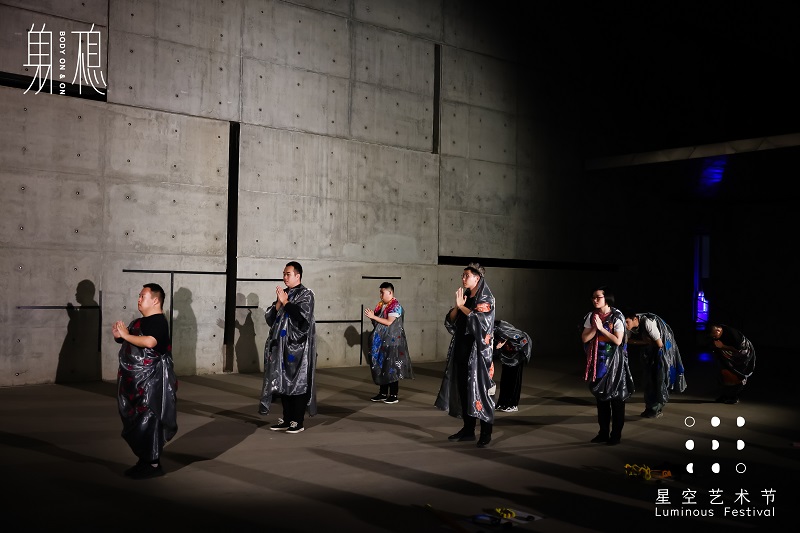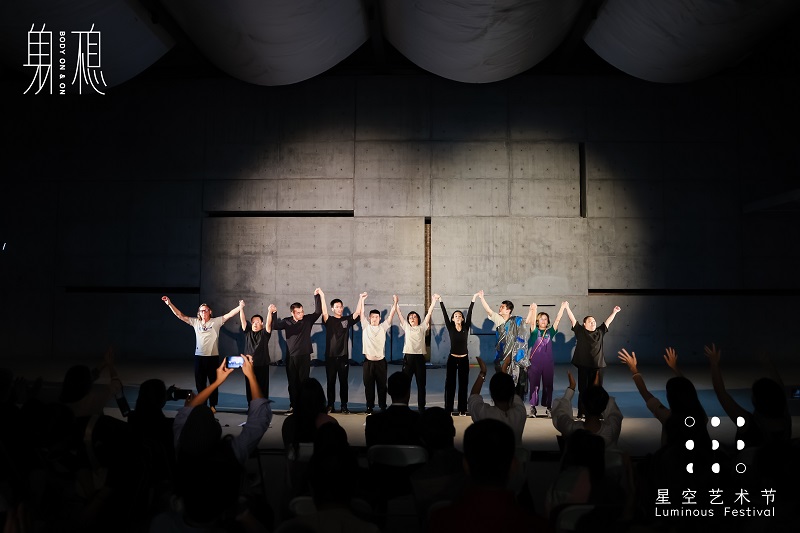
Journey to the West is staged at the 798 Cube Art Museum on September 26, 2025.
When the iconic theme music from Journey to the West – a television adaptation of one of China’s four great classical novels resounded at the 798 Cube Art Museum, eight performers from the Intellectual Heart Theater Company took the stage. As China’s first contemporary inclusive theater group composed of individuals with intellectual disabilities, they embarked on a new kind of journey: one of self-expression through movement and speech.
Staged by Beijing Body On & On Cultural Exchange Center in collaboration with the 798 Cube Art Museum, the piece premiered on September 26, 2025 during the 7th Luminous Festival in Beijing. Though the troupe had been established for just four months, their debut deftly wove a powerful narrative of courage, confidence, and inclusiveness, fostering a poignant dialogue between society and an often overlooked community.
The eight young performers – individuals with autism, Asperger’s syndrome, and Down syndrome – united by their choice of theater as their way of self-expression, selected Journey to the West for their first production due to their shared affection for the classic tale. Rather than literally reenacting the novel’s plot, they used it as a framework to explore their own identities, drawing abstract parallels between the legendary pilgrims and their personal journeys. In this interpretation, the protagonists’ strengths resonated with their own, while the mythical monsters symbolized the cognitive and social challenges they navigate in daily life. The rehearsal process itself became a meaningful journey – arduous yet joyful – facilitating personal growth and a profound sense of accomplishment.

Chinese director Chen Ran (second from right), British director Richard Colon (first from left), and the eight performers take the stage for a curtain call at the end of the performance. Photos courtesy of Body On & On
In a post-show discussion, the directors, artistic director of the UK’s Blue Apple Theater Richard Colon and Chinese theater operator Chen Ran, reflected on this unique collaborative process. They emphasized fostering a non-hierarchical rehearsal culture where the directors were not seen as experts, but as equals collaborating with the performers, who often led creative sessions themselves. This approach prioritized the actors’ subjective creativity.
As a director from the theater that integrated classic adaptation and inclusive arts, Colon has gained a new understanding of the Chinese classic. “The more we worked with the idea of a pilgrimage, the clearer it became that the four main characters could only succeed by working together. It felt like a powerful metaphor for our company, for society, and for the future we are moving toward together,” said Colon.
Chen Ran described the production as a process-oriented innovative endeavor. “Much like the scripture-seeking journey in the original story, the creation was full of fascinating challenges. Each of the eight performers brings unique interests and energy, making every day unpredictable and every moment ripe with spontaneous creativity,” Chen noted.
Ge Huichao, producer of the show and organizer of the troupe, described the performance as a milestone for the new group. She was looking forward to more performances to increase public awareness and create further opportunities for individuals with intellectual disabilities to express themselves through theater.